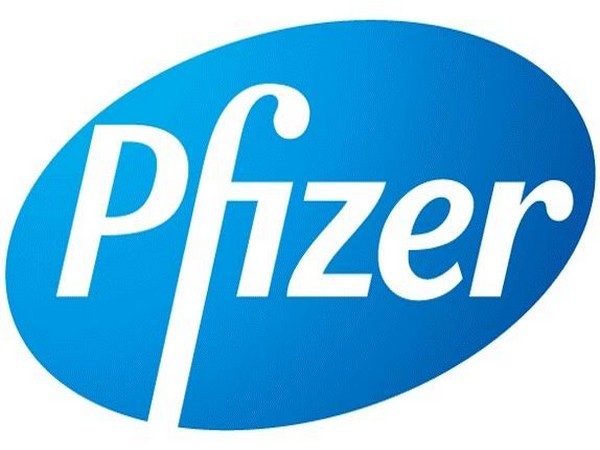Health News Roundup: Get cancer checks, UK's Sarah Ferguson urges after revealing own surgery; Pfizer scraps one weight loss drug in race to develop Ozempic rival and more
Novo plans to seek U.S. and European regulatory approval of the high-dose pill later this year, but timing of a market launch is "to be determined," according to Mico Guevarra, medical director at Novo Nordisk. UK regulator lifts ban on using blood plasma for albumin treatments Britain's medicines regulator on Monday lifted a ban on using blood plasma from UK-based donors for deriving albumin, which is used in critically ill patients to replace blood loss from severe injuries and treat diseases like sepsis.

Following is a summary of current health news briefs.
Get cancer checks, UK's Sarah Ferguson urges after revealing own surgery
Britain's Sarah Ferguson, the Duchess of York, has urged people to make sure they have checks for cancer after disclosing she has undergone surgery herself for the disease. Ferguson, 63, the ex-wife of King Charles' brother Prince Andrew, had successful surgery after breast cancer showed up in a routine mammogram screening, her spokesman said on Sunday, with her prognosis said to be good.
Pfizer scraps one weight loss drug in race to develop Ozempic rival
Pfizer Inc will drop the development of an experimental obesity and diabetes pill and instead advance another therapy, danuglipron, into late-stage trials as it races to rival the success of other weight loss treatments. The company's shares fell 2% in volatile premarket trading on Monday as Pfizer said it would stop developing experimental therapy lotiglipron, after patients who took the drug in clinical studies were shown to have elevated levels of liver enzymes.
Novo Nordisk says obesity pill leads to 15% weight loss; availability "to be determined"
Novo Nordisk on Sunday said a late-stage trial found that a high-dose oral version of its drug semaglutide helped overweight or obese adults lose 15% of their body weight, which is in line with recent results for other experimental obesity pills. Novo plans to seek U.S. and European regulatory approval of the high-dose pill later this year, but timing of a market launch is "to be determined," according to Mico Guevarra, medical director at Novo Nordisk.
UK regulator lifts ban on using blood plasma for albumin treatments
Britain's medicines regulator on Monday lifted a ban on using blood plasma from UK-based donors for deriving albumin, which is used in critically ill patients to replace blood loss from severe injuries and treat diseases like sepsis. The ban on plasma-derived medicinal products in the UK was imposed in 1999 as a safety precaution against the spread of variant Creutzfeldt Jakob Disease (vCJD) - a rare, rapidly worsening brain disorder.
FibroGen's drug fails late-stage trial for treating lung disease
FibroGen said on Monday its experimental drug pamrevlumab did not meet its main goal in a late-stage study for treating a chronic lung disease, and that it plans to implement a "significant cost reduction effort" in the U.S. to extend its cash runway into 2026. Shares of the company plunged 74% in premarket trading.
COVID-19 vaccine scheme for poorest has $2.6bn left to spend as pandemic recedes
Several billions of dollars left in a scheme to deliver COVID-19 vaccines to the world’s poorest could be diverted to prepare for other pandemics or to support vaccine manufacturing in Africa, the scheme's partners said. The COVAX initiative, run by Gavi, the Vaccine Alliance, the World Health Organization (WHO), and the Coalition for Epidemic Preparedness Innovations (CEPI), has $2.6 billion left in its coffers as the emergency phase of the pandemic draws to a close, according to documents seen by Reuters and two sources close to the scheme.
Merck accused of downplaying early evidence of drug’s brain impact
An early magazine advertisement for Merck’s breakthrough asthma and allergy medicine, Singulair, featured a happy child, hanging upside-down from a tree. Asthmatic kids could now breathe easier, the text assured, and side effects were “usually mild” and “similar to a sugar pill.” When the drug launched in 1998, its label said the drug’s distribution in the brain was “minimal,” with no mention of psychiatric side effects.
Exclusive-Indonesia police probe drug regulators over cough syrup
Indonesia's police are conducting preliminary inquiries into whether any actions by officials at the country's drug regulator could amount to criminal wrongdoing, as they expand a probe into tainted cough syrups linked to the deaths of more than 200 children across the nation, two top inspectors told Reuters. The police scrutiny of Indonesia's food and drugs agency (BPOM) is the latest escalation by states seeking accountability for contaminated syrups that were linked to the deaths of dozens more children in Gambia and Uzbekistan last year. The World Health Organization is working with countries to investigate the global pharmaceutical supply chain for such syrups.
Extreme heat 'disproportionately' impacts people with disabilities - report
People with disabilities in Spain and other European countries have been disproportionately affected by unprecedented heat extremes, a leading human rights watchdog said on Monday, urging authorities to provide adequate support. Human Rights Watch (HRW) said in a report that people with disabilities faced risk of death, physical, social, and mental health distress due to extreme heat particularly if "left to cope with dangerous temperatures on their own".
GSK soothes investors by settling first Zantac cancer lawsuit due for US trial
GSK agreed to settle a U.S. lawsuit alleging its discontinued heartburn drug Zantac caused cancer, the British drugmaker said on Friday, preventing the first such case from going to trial next month. The company said it had reached a confidential deal with California resident James Goetz who alleged he developed bladder cancer from taking the drug. The trial was due to start on July 24, and would have been the first test of how Zantac cancer claims would fare before a jury.










